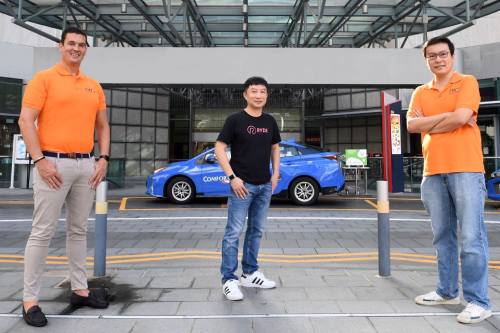
FWD Singapore has partnered with Ryde Technologies, a home-grown mobility services firm, to provide free insurance coverage to ride-hailing passengers.
The coverage will provide a SG$10,000 payout per passenger in case of accidental death while on a Ryde trip. Other events covered are loss of identification documents such as passport or drivers licence, with a payout of up to SG$200, and disruption of the trip due to an accident requiring emergency assistance, with SG$20 of Ryde Wallet credits.
The offer is available until the end of June 2022.
“Digitalisation and innovative and intuitive customer experiences are always at the heart of FWD,” said Khor Kee Eng (pictured right), CEO of FWD Singapore. “As Singapore reopens gradually, we expect demand for ride-hailing services to pick up and see strong growth potential ahead for this partnership.”
Launched in Singapore in 2014, Ryde provides a range of services for commuters, including e-payment, private car and taxi. According to the company, it currently has more than 10,000 driver partners on its platform and has been downloaded by more than 700,000 users.
“We believe in making daily commute better for all, and one of the ways we can do this is by ensuring customers who book our rides enjoy peace of mind during their journeys with us,” said Terence Zou (pictured centre), founder and CEO of Ryde. “In this regard, we are glad to embark on this strategic partnership with FWD and look forward to other opportunities in future.”
David Broom (pictured left), FWD Group chief officer, new business models, added: “This collaboration with Ryde demonstrates how we’ve made it seamless and easy for our customers to instantly get the insurance coverage they need. It also affirms our commitment to work with like-minded e-commerce partners across the region as we continue changing the way people feel about insurance.”





More Stories
10 Questions to Ask When Considering a Health Insurance Quote
Understanding Vision Insurance
Financial Investment Tips: How to Get Prepared for Investing and Starting a Portfolio